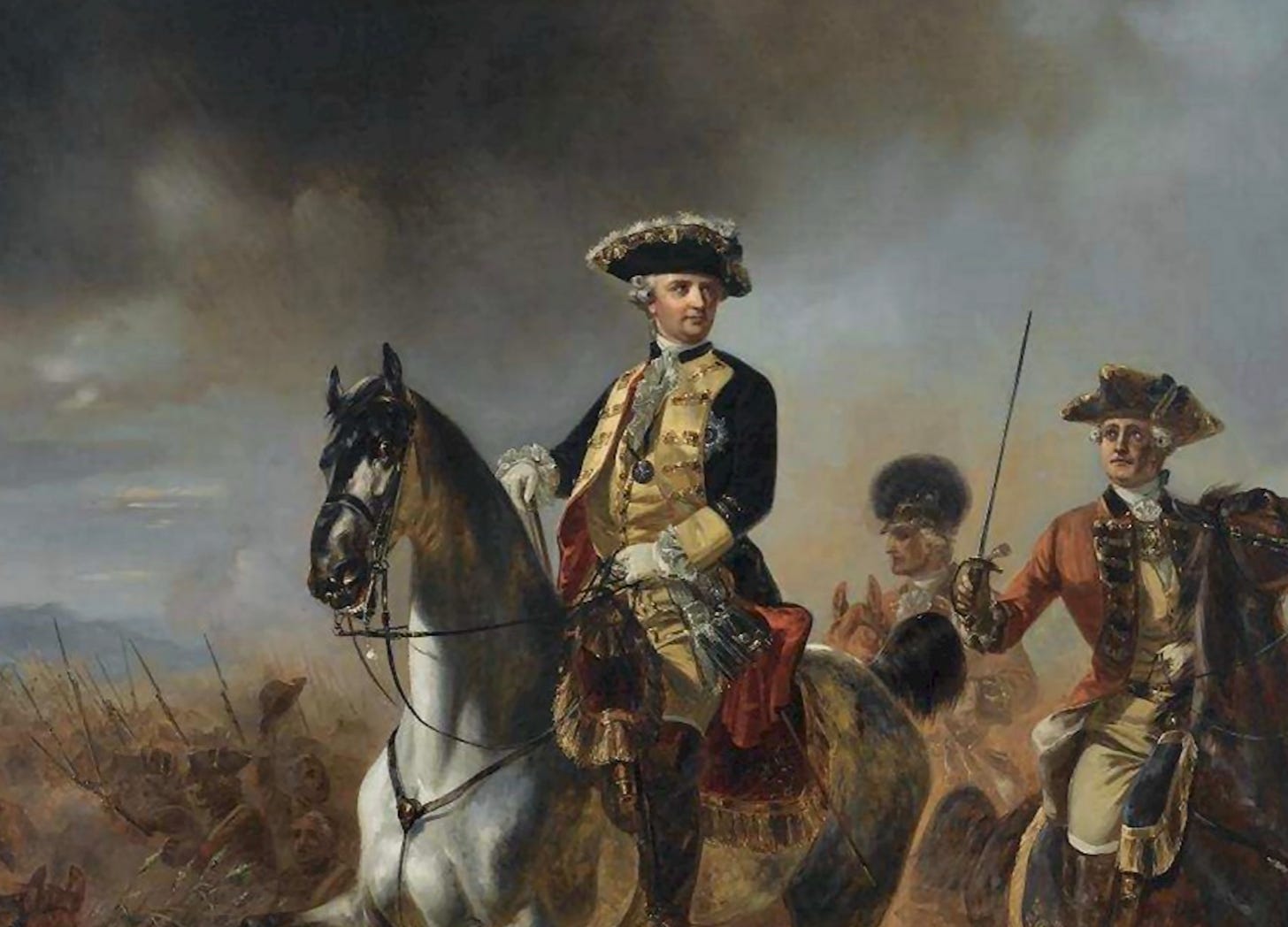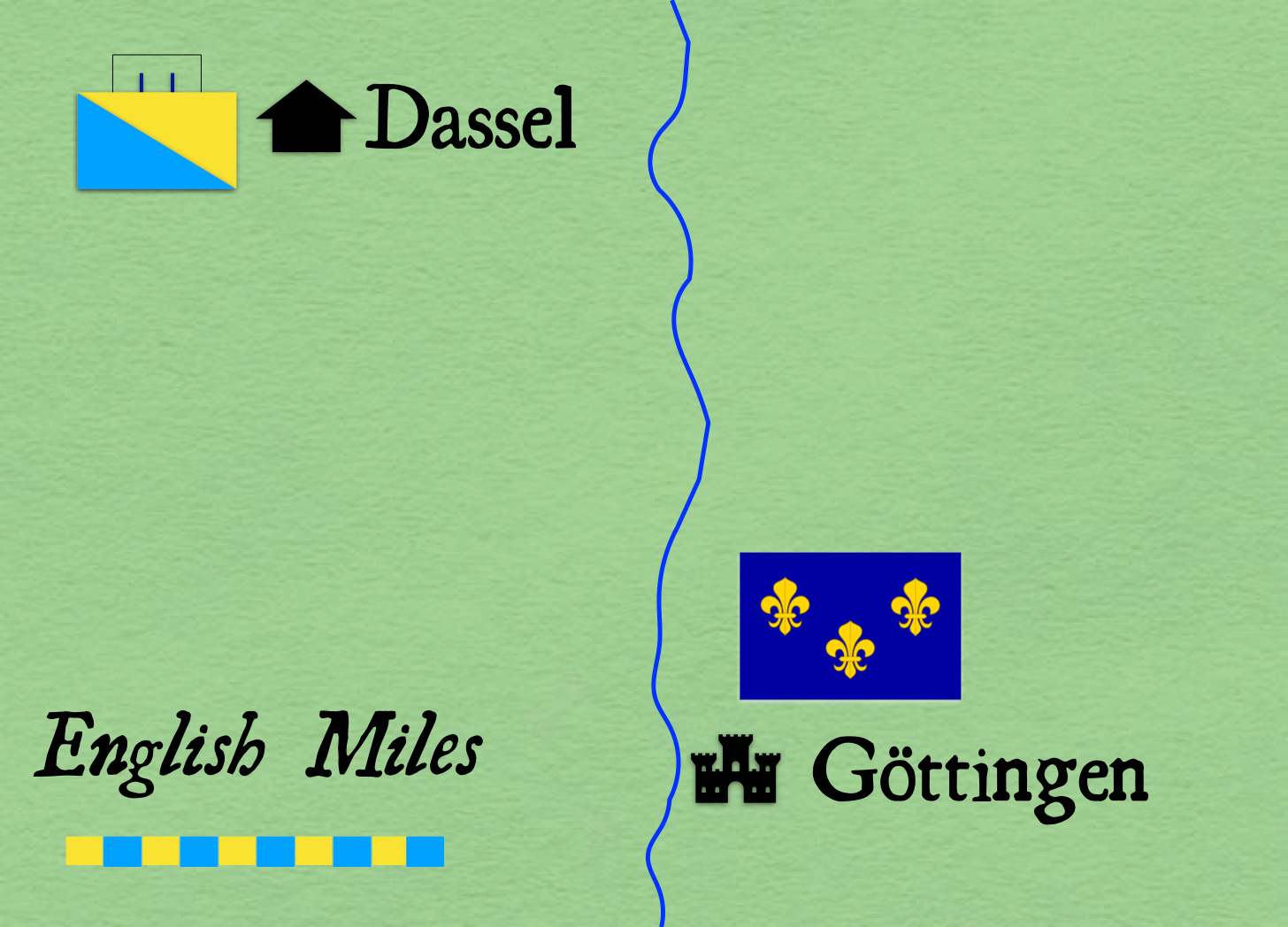The Blue Brunswickers (The Problem)
A decision-forcing case study
For information about the protagonist of this case and the overall situation in which he finds himself, please see the first post in this series.
You and your regiment occupy the town of Dassel, the anchor of the cordon of Anglo-German forces keeping watch over the French forces in western Germany. (As far as you know, the nearest French units are located in the city of Göttingen, some twenty English miles southeast of your position.)
The land between Dassel and Göttingen provides a home for many rolling hills, a great deal of open land, and the River Leine. The last-named feature runs, from south to north, along the sixty or so miles that separate Göttingen from the city of Hanover. Neither wide nor particularly deep, this slow-flowing stream can be crossed, whether by ford or by bridge, in a large number of places.
Pasture covers about half of the land in this part of Hanover. Farms and forests account, in equal proportion, more or less, for most of the rest.
As might be expected, the countryside is dotted with villages. In addition to this, Göttingen is surrounded by a belt of small industrial settlements, where people engaged in odiferous enterprises of various sorts ply their sooty, smelly trades.
Your Mission
The commanding general of the army in which you serve, Duke Ferdinand of Brunswick, wishes to know about any French cavalry units that might be located in, or around, Göttingen. To that end, he has given you the mission of providing him with an accurate count of all of the French horse soldiers in the vicinity of that city.
Your Force
Your regiment consists of six squadrons, each of which can put 83 or so men into the field. Thus, the total strength of your command hovers around 500 officers, non-commissioned officers, and men.
Other Considerations
Patrols from two opposed armies have been foraging in the area between Dassel and Göttingen for six years. As a result, the country people who remain have mastered the art of hiding their food and fodder.
The time of the year is late spring. Thus, there is plenty of fresh grass for horses to graze upon.
What now, Baron Riedesel?
Please feel free to use the comments section to propose solutions to this problem. (When you do this, please take care to refrain from providing information that would spoil the fun for other readers. In other words, if you know the story, please keep mum.)
I will post the historical solution on Friday, 30 August 2024. (This will include links to the sources that I used.)
For Further Reading:










1. Establish a few well sighted, but not obvious, observation posts in the hills overlooking the grazing fields. Then make a daily count of how many horses are turned out. Dress up the soldiers at the OPs in local costumes and have them keep their mounts concealed to minimize detection.
2. Watch road traffic for fodder wagons and French patrols and add those estimates to the list and estimates.
3. Establish a series of standing and irregular patrols by your soldiers in uniform. The French will be expecting to see them anyway and seeing them will cause them to not look for the other OPs. Watch your flanks as not all Frenchmen will be in or around Göttingen. This will help with counter reconnaissance efforts, so watch the crossings and road activities.
4. Talk with the locals about French patrols, units and purchases/requisitions by them. Pay for this info and all supplies you need so as not to annoy the locals.
5. Try to run a clandestine patrol or two with locals and one or two of your brighter NCOs or officers into Göttingen to get a better look at things there. Travel with locals who have legitimate business there to provide cover.
6. Expect the French to try the same things and watch for them.
Watch the peasants first.
^^^^^**
Then watch for the foragers.
See how much they forage and multiply by X
X = being a horse cavalryman you know how much fodder a horse needs
X = 20 lbs of forage daily for average 1000 lbs horse.
If the French foragers take 2000 lbs they may have 100 horses.
The most important part is to watch or buy info from the peasants, because they know.
Watch the peasants before you carefully approach, purse in hand
This may be used in conjunction with COA 2
Grab not a fellow FR cavalryman but the older semi boss soldier on the cart. He knows.